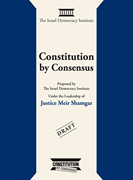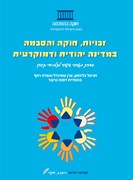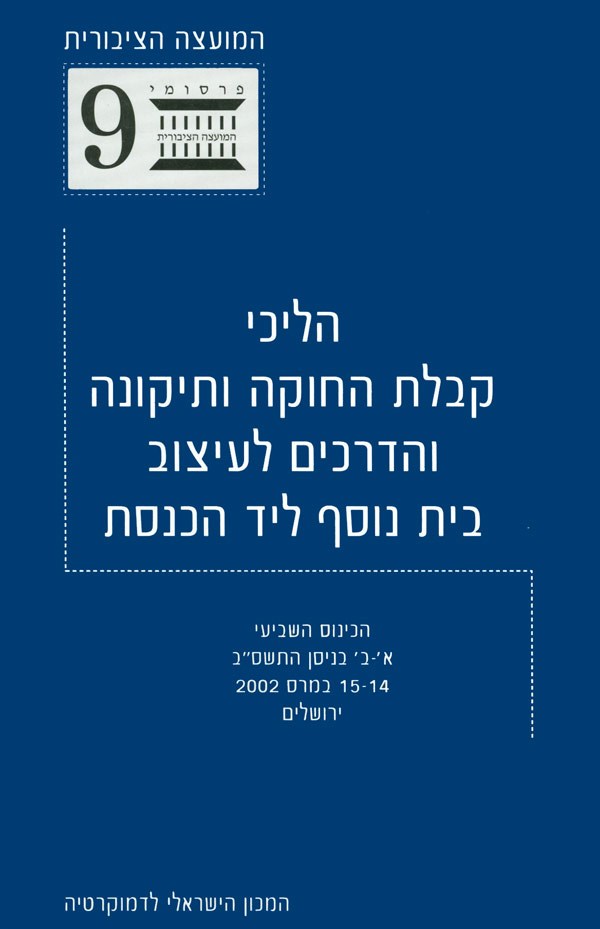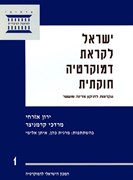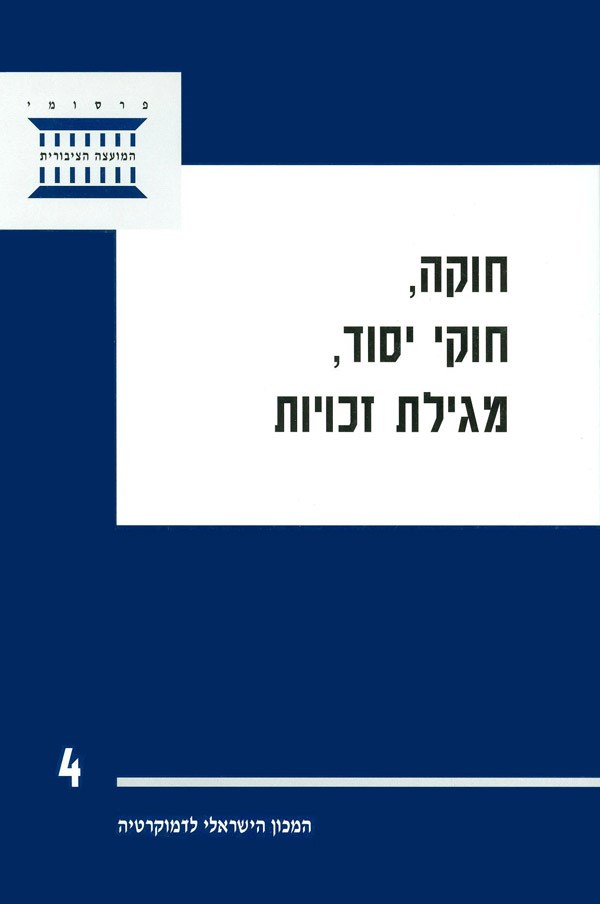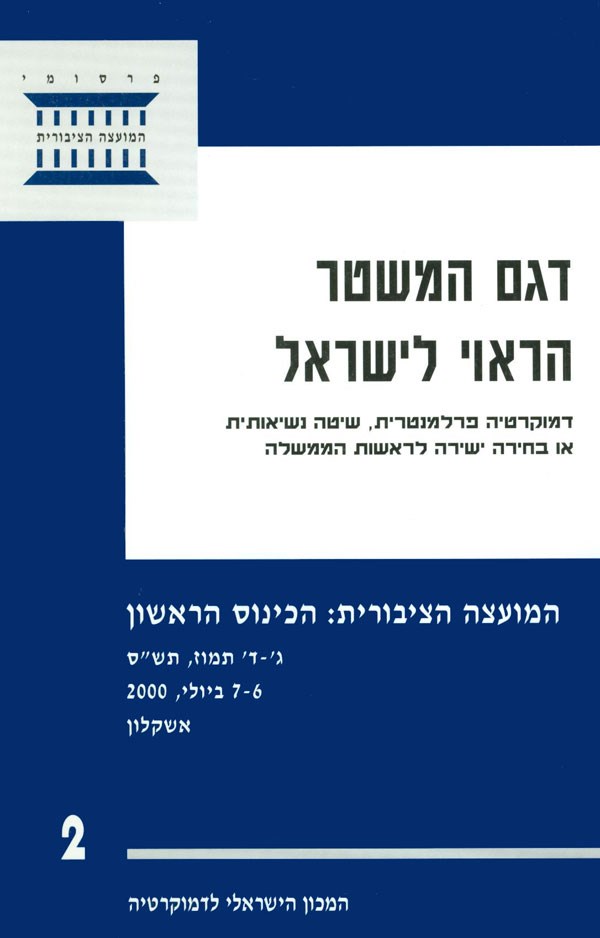Over six decades after Israel's independence, David Ben Gurion's promise to establish a constitution for the State of Israel remains unfulfilled. Now more than ever, Israel needs a constitution to stabilize its political system, define the relationship between the three branches of government, and guarantee basic human rights in a diverse and threatened society. IDI has been at the forefront of those calling for the consensual adoption of a constitution by the Israeli Knesset. The Institute has taken the lead in bringing the need for a constitution to the public's attention and assisting policymakers from across the political spectrum through the difficult process of crafting the necessary compromises.
Most importantly, IDI has led by example. In 1998, IDI convened a Public Council comprised of over 100 leading academics, social activists and public figures, headed by Supreme Court President (emeritus) Meir Shamgar, to debate the fundamental issues underlying a prospective constitution for Israel. The deliberations of this illustrious group won the Knesset's official recognition and set the stage for IDI's efforts to produce a draft constitution that embodied the Jewish and democratic qualities of the State of Israel. With the encouragement of the Knesset's Constitution, Law and Justice Committee, IDI then set out on a long and arduous journey toward an institutional draft. In 2005, after three years of difficult debate among the Senior Fellows of the Institute, IDI President Arye Carmon and Chief Justice (Emeritus) Meir Shamgar presented the Knesset with Constitution by Consensus, an unprecedented document embodying the difficult compromises necessary for a constitutional order potentially acceptable to the vast majority of Israeli citizens. Over the last years, this document has served as a key guiding text for the ongoing constitutional process within the Knesset.
The uniqueness of IDI's draft constitution lies in its insistence that multiple compromises are essential for the successful adoption of a constitution in Israel's divided society. Compromise is essential if we are to ease the tensions between Israel's Jewish and democratic qualities, foster broad national solidarity, and provide an inclusive framework that guarantees human rights. A constitution backed by broad societal consensus may be the first step towards unifying Israel's torn society, protecting its minorities and reaching a sustainable peace in the Middle East.




